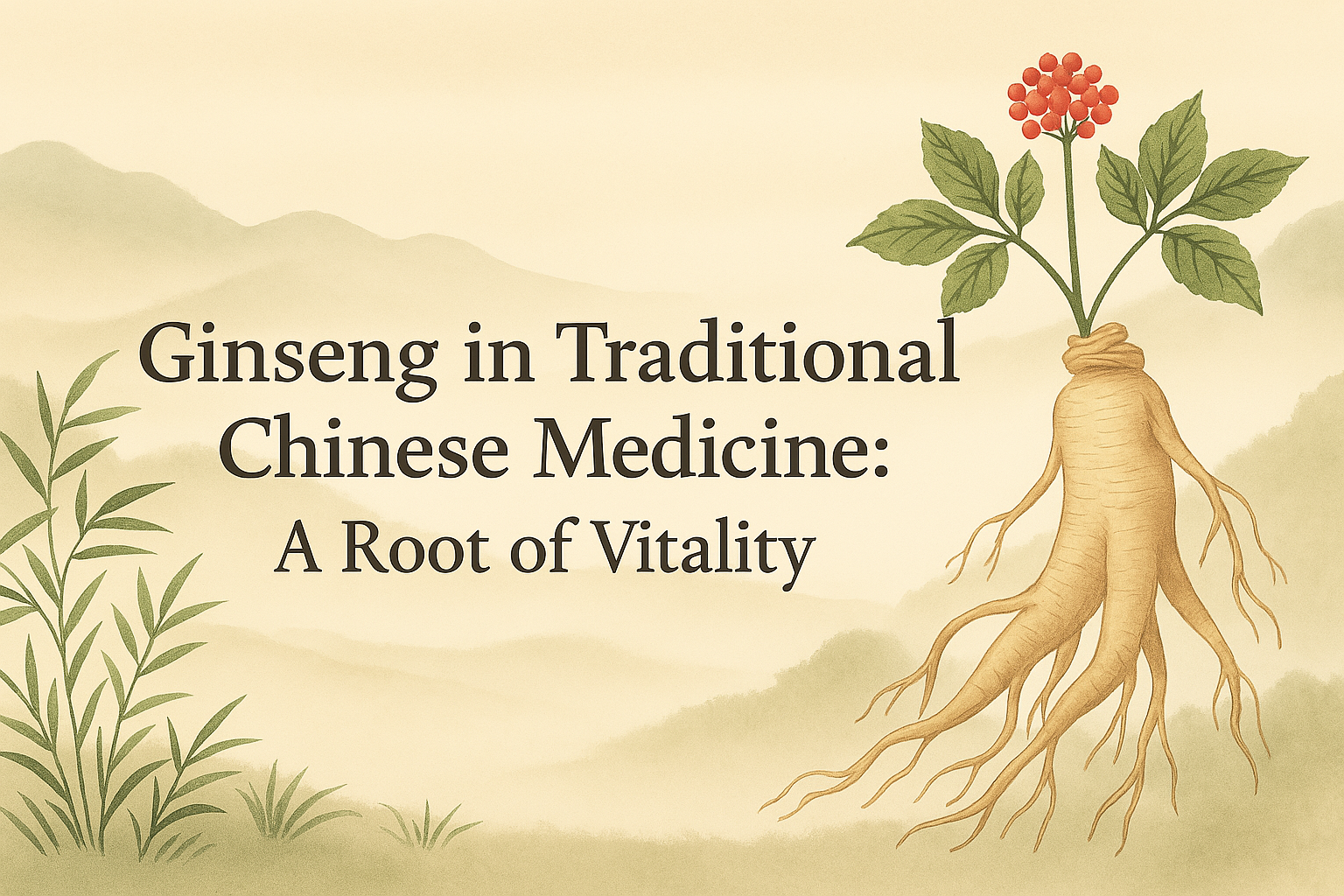Ginseng, known as Ren Shen (人参) in Traditional Chinese Medicine (TCM), is one of the most valued and widely used herbs in the Chinese pharmacopeia. Revered for centuries as a tonic that strengthens vitality and prolongs life, ginseng holds a central place in herbal medicine, both in classical texts and modern practice.
What Is Ginseng?
Ginseng refers primarily to the root of Panax ginseng, a perennial plant native to East Asia. In TCM, ginseng is classified as sweet and slightly bitter in taste, and slightly warm in nature. It enters the Lung, Spleen, and Heart meridians, and is most well-known for its ability to tonify Qi—the vital energy that supports all bodily functions.
Key Functions in TCM
- Tonifies Yuan Qi (Original Qi):
Ginseng powerfully supports the body’s core energy, often used when Qi is severely depleted, such as after chronic illness or surgery. - Strengthens the Spleen and Lungs:
It enhances digestion and respiratory function, making it ideal for fatigue, poor appetite, or chronic cough. - Nourishes the Heart and Calms the Spirit:
Ginseng is used to address palpitations, insomnia, and forgetfulness, especially when caused by deficiency. - Supports Body Fluids:
It promotes fluid generation and helps alleviate thirst—valuable in cases of febrile illness or diabetes.
Different Types of Ginseng
- White Ginseng: Sun-dried; milder and suitable for general use.
- Red Ginseng: Steamed and dried; warmer and more potent, often used for deeper deficiency.
- American Ginseng (Panax quinquefolius): Cooling in nature, often used to nourish Yin rather than strongly tonify Qi.
Usage and Cautions
In TCM, ginseng is typically decocted, powdered, or taken in pill form, often in combination with other herbs to balance its effects. It’s especially beneficial for elderly individuals, those recovering from illness, or patients with chronic fatigue.
However, it is not suitable for individuals with excess heat, acute infections, or strong Yang patterns. Overuse can lead to insomnia, irritability, or digestive upset.
Conclusion
Ginseng exemplifies the TCM principle of treating deficiency with nourishment. Its ability to restore strength and support vital organ function makes it an enduring symbol of longevity and resilience in Chinese herbal medicine. When used appropriately, it offers deep and lasting benefits for energy, immunity, and overall vitality.


发表回复